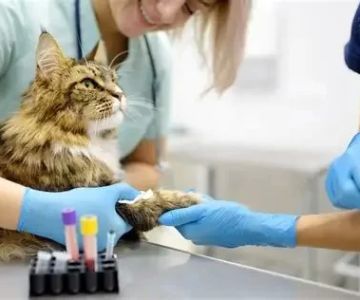- 1-Importance-of-Smooth-Pet-Introductions-to-New-Vets
- 2-Preparing-Your-Pet-for-the-First-Visit
- 3-During-the-Visit-How-to-Help-Your-Pet-Feel-Comfortable
- 4-Post-Visit-Care-and-Building-Trust-with-Your-New-Vet
- 5-Real-Life-Examples-Showing-Successful-Pet-Vet-Introductions
1. Importance of Smooth Pet Introductions to New Vets
Changing your pet’s veterinarian can be stressful for both you and your furry friend. That’s why knowing effective tips for introducing your pet to a new vet is crucial. A smooth transition helps reduce anxiety, builds trust, and sets the foundation for long-term health care. Pets sensitive to new environments especially benefit from gradual, positive introductions to their new veterinary team.
Building a Positive Association
Early positive experiences with the new vet encourage cooperation during exams and treatments. It also reassures you as a pet owner that your companion’s well-being is in safe hands.
2. Preparing Your Pet for the First Visit
Preparation can make all the difference. Start by gathering your pet’s medical records and sharing important history with the new clinic. Use familiar toys or blankets to comfort your pet during travel.
Familiarize Your Pet with the Carrier or Car
For cats or small animals, introducing the carrier gradually can reduce stress on the visit day. Short, calm car rides can acclimate your pet to travel.
Practice Calm Behavior
Your attitude influences your pet’s mood. Speak softly and maintain calm body language to encourage relaxation.
3. During the Visit: How to Help Your Pet Feel Comfortable
At the clinic, stay close to your pet and offer gentle reassurance. Some veterinarians are trained in low-stress handling techniques, so communicate your pet’s needs or fears.
Bring Treats and Positive Reinforcement
Rewarding your pet for calm behavior builds positive associations with the vet. If allowed, bringing favorite treats can make exams more pleasant.
Ask Questions and Share Concerns
Open communication with the vet team ensures personalized care and lets the staff tailor their approach to your pet’s temperament.
4. Post-Visit Care and Building Trust with Your New Vet
After the visit, maintain routines that reinforce safety and comfort. Schedule follow-ups and keep communication open. Over time, your pet will develop trust and familiarity with the new clinic environment.
Regular Visits Help Reduce Anxiety
Frequent check-ins, even when your pet is healthy, create routine and ease future appointments.
5. Real-Life Examples Showing Successful Pet-Vet Introductions
One pet owner shared how their shy dog initially feared the new vet’s office but, through gentle introductions and positive reinforcement, now greets the staff enthusiastically. Another cat owner praised Hidden Brook Veterinary for their patient approach, which helped their nervous feline relax completely during exams.
Building Lasting Relationships
These stories highlight the value of thoughtful introductions and the difference a compassionate veterinary team can make.
For personalized support and expert care, visit Hidden Brook Veterinary, where compassionate professionals provide tailored guidance to make every pet’s vet experience positive and stress-free.











